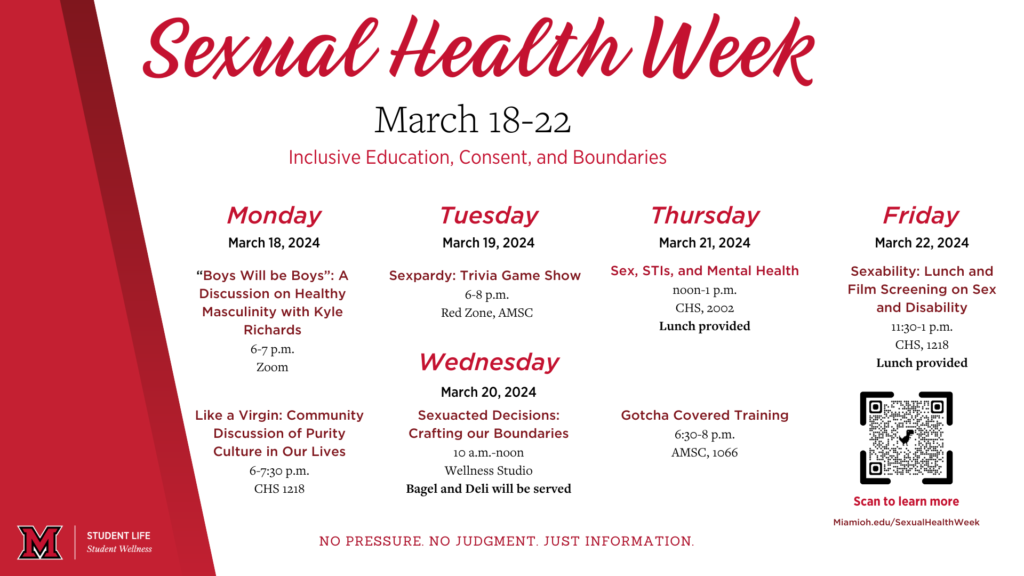
Let’s talk about why Sexual Health Week is such a big deal, especially on college campuses. Picture this: a whole week dedicated to embracing sex education, sharing resources, and expanding our knowledge. Sounds pretty awesome, right?
In our society, sex education often stops at the “birds and bees” talk, leaving out crucial info. We’re talking about a narrow view of sex that doesn’t fit everyone’s experiences or identities. And let’s be real: not everyone feels comfortable diving into conversations about sex.
But here’s the thing: when we don’t talk about sex openly, we’re missing out on a whole lot, and that leaves a lot of room for error. Without proper education on safer sex practices, we miss out on learning about:
- Reproductive development
- Healthy ways of communication
- STI prevention
- Recognizing and preventing sexual violence
- Consent
- Unintended pregnancy prevention
- Healthy sexual and nonsexual relationships
- Gender identity
- Sexual orientation
That’s a lot, huh?
Many components inform how people choose to engage or choose not to engage in sex. When we open conversations about sex going beyond the basics, we allow students to think about sex in new and empowering ways.
This is why we have Sexual Health Week, a week of events designed to give people on our campus the tools to think through ideas, challenges, and decisions they may have been pondering for a long time.
Sexual Health Week is designed to teach students about bodily autonomy and to help them make good decisions based on their own goals and values.
Sexual Health Week is designed to bring these important topics to light in an exciting and new way. It is intended to help prevent sexual assault on campus, reduce the transmission of STIs, and help students develop skills for life after college.
Sexual Health Week is March 18-22, 2024. Find all of our events here.
Written by Morgan-Allison Moore, M.Div. (Pronouns: She/Her/Hers)
Assistant Director, SIV Prevention and Outreach, Health Equity, and Access
Email: moorem23@miamioh.edu
This article was originally published in the newsletter ‘Courageous Connections.’ Subscribe here to stay up to date with resources, events, and ways to support survivors of sexual assault or interpersonal violence.


